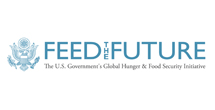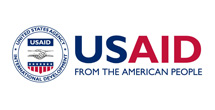Evaluations, Reviews and Studies
Postharvest Losses in Ethiopia and a Customized Method for Loss Assessment, November 2018
Postharvest losses (PHL) in Ethiopia are considered to be very high, ranging from 15.5% to 27.2% of cereals entering storage. However, understanding PHL is hindered by the use of different methods for loss assessment. This report reviews PHL in Ethiopia, an proposes a customized and standard method for estimating loss. The full report is available here: TUFTS_1851_AKLDP_Post_harvest_loss_V3_online
Re-orientating Livestock Production in Ethiopia to Market Demands, October 2018
This study was requested by Ethiopia’s Ministry of Livestock and Fisheries, and examines livestock production systems against the demands of high-end domestic markets, and meat and live animal export markets. The study includes technical and economic assessments of different intervention models, and provides recommendations for re-orientating conditioning and fattening practices to better meet market requirements. The full report is available here TUFTS_1846_AKLDP_reorienting_livestock_V4_online
Agricultural Development in Drought-Prone Areas of Ethiopia: Interventions, Challenges and Good Practice, September 2018
This study re-examines mixed crop-livestock farming in areas of Ethiopia that are subject to repeated drought, and chronic poverty and food insecurity, and covers selected dryland areas of Amhara, Oromia and Tigray regions. The study makes recommendations for rain-fed systems, which are highly dependent on livestock rearing, as well as areas with irrigation potential and more options for crop production. The full report is available here Drylands Agriculture study final report
Agricultural Commercialization in Ethiopia: A review of warehouse receipts in cereal value chains
Ethiopia is considered as one of the pioneers of the Warehouse Receipt System (WRS) in Africa, but the approach has not yet fully taken off. This study proposes the adoption of a multi-tiered WRS for Ethiopia, but for a formalized and extended WRS, building capacity will be crucial. This review was requested by the Agriculture Transformation Agency and the full report can be read here WRS-report_web_revised_3
Assessing the Feasibility of Public-Private Partnerships for Livestock Facilities in Ethiopia
This study was requested by the Ministry of Livestock and Fisheries, and confirms the technical and financial viability of public-private partnerships to manage municipal abattoirs, quarantine facilities, and livestock markets in the selected locations. While noting potential benefits to both public and private sectors, the report also notes a set of policy and institutional issues which need to be addressed. Read the report PPP Report final
Performance Evaluation of Title II Funded Development Food Assistance Programs in Ethiopia, May 2017
This evaluation report covers the four DFAPs in Ethiopia funded by USAID, and contributing to the Government of Ethiopia’s national Productive Safety Net Programme. The DFAPs shared a common goal of improving food security amongst target populations through various mechanisms, including predictable transfers, community asset development, capacity building, and livelihood development. Read the report TUFTS_Performance_DFAP_report
Self-Help Groups and Drought in Ethiopia: Does self-help enhance resilience?
This review examines the impacts of self-help groups (SHGs) supported by Tearfund and “… looks at the impact of drought and membership in the SHGs and assesses whether, how, and to what extent the self help approach might have increased the resilience levels of SHG members and helped them in dealing with drought.” Read the report shg-report-final
Food Security in Ethiopia in 2016: Analysing Crop Production and Market Function After the Main Meher Agricultural Season, April 2016
Following a major drought in Ethiopia in 2015 to 2016, this comprehensive food security assessment examines: local food supply and imports; the effects of food imports on price stability and food security; the logistics and distribution of imported food; and the performance of cereal and pulse markets. Key findings include estimates of the food deficit in 2016, and levels of imported food required. Read the report: TUFTS_1640_El_Nino_market_assessment_V3_online
A Review of Feed The Future Collaboration with the Government of Ethiopia’s Agriculture Growth Program, April 2016
This review examines the partnerships and collaboration between the United States Government’s Feed The Future program and the Government of Ethiopia’s Agriculture Growth Program (AGP). The review focuses on two Feed the Future projects, AGP-Agribusiness and Market Development and AGP-Livestock Marketing Development. It identifies areas of good practice, and areas where improvements would lead to stronger collaboration ftf-agp-collaboration-review
Performance Evaluation of the Ethiopia Development Credit Authority, May 2016
The Development Credit Authority (DCA) in Ethiopia aims to motivate private commercial banks to provide loans to small and medium enterprises, by offering partial partial credit guarantees. This performance evaluation assessed the DCA using six main indicators: appropriateness of the design; utilization; credit additionality; financial sustainability; program sustainability; and impact on borrowers. DCA evaluation_FINAL
El Nino in Ethiopia, 2015-2016: A Real-Time Review of Impacts and Responses, March 2016
From 2015 into 2016 Ethiopia experienced a major drought, with at least 18 million people in need of humanitarian assistance. This review covers the impacts of the drought and the emergency responses up to March 2016, with initial lessons focusing on the timeliness and scale of response, coordination, the use of contingency mechanisms by the Productive Safety Net Programme, and the increasing use of flexible fundings and crisis modifiers by development projects. AKLDP El Nino Review March 2016
Using Good Practice Guidelines for Livestock Support During Drought in Ethiopia, March 2016
This review covers organisational capacities to use the Livestock Emergency Guidelines and Standards (LEGS) and the Government of Ethiopia’s National Guidelines for Livestock Relief Interventions in Pastoralist Areas during the El Nino drought in Ethiopia in 2015-16. LEGS El Nino Ethiopia 2016
Rapid Assessment of Feed the Future – Nutrition Capacity Building, March 2016
This review report focuses on the capacity-building activities of the Feed the Future project Empowering New Generations to Improve Nutrition and Economic Opportunities (ENGINE) in Ethiopia TUFTS_1609_Nutrition_CBA_V4_online
Improving Crop Yields in Ethiopia: Early impacts from Rhizobia-inoculated legume seed, February 2016
This Technical Brief summarises the results of an impact assessment of the use of bio-fertiliser on chickpea and faba bean yields, as well as yields of follow-on cereals. AKLDP Inoculants brief Feb 2016
Ethiopia’s Agriculture Sector Policy and Investment Framework (2010-2020): External Mid-term Review, October 2015
This mid-term review (MTR) of the Agriculture Sector Policy and Investment Framework (PIF), 2010 to 2020, was undertaken at the end of the first five years of its implementation; this was also the period for the first Growth and Transformation Plan (GTPI). The objectives of the MTR were to evaluate the relevance and performance of PIF for the prioritization and planning of investments and policy development in the agricultural sector, and to provide guidance on the proposed revision of PIF to enhance its role as a strategic tool for the sector. Agriculture Policy MTR_FINAL
Ethiopia Bellmon Analysis 2015/16 and Reassessment of Crop Production and Marketing for 2014/15, October 2015
This Bellmon Analysis was conducted before the major drought in Ethiopia in 2015 to 2016, and so provides information on food security, market performance and food imports before the drought. Read the report
Mid-term Evaluation of Agribusiness Marketing and Development (AMDe) Project, July 2015
The AMDe project is Feed the Future’s main project in Ethiopia supporting agriculture value chain development. The external mid-term evaluation report on the project is available here AGP-AMDe_MTE final
Feed the Future Ethiopia – Mid-term Evaluation Report, May 2015
The US Government’s Feed the Future program in Ethiopia aims to support inclusive agriculture sector growth and improve nutrition, and funds projects valued at $273 million. This mid-term evaluation of the program focuses on the five main Feed the Future projects, which in terms of funding, comprise approximately 78% of the overall program. The evaluation report assesses performance to date, examines the causal framework for the program, and predicts future performance against program targets. The report also makes recommendations for strengthening the program. Report and Annexes.
Mid-term evaluation of PRIME project, Ethiopia, February 2015
This is the external mid-term evaluation report of the Pastoralist Areas Resilience Improvement Through Market Expansion (PRIME) Project in Ethiopia USAID PRIME MTE report Feb 2015
Mid-term evaluation of AGP-LMD project, Ethiopia, May 2015
This is the external mid-term evaluation report of the Agricultural Growth Program-Livestock Market Development (AGP-LMD) Project in Ethiopia AGP-LMD MTE final report May 2015
Review of the New Alliance in Ethiopia, June 2014
This report presents progress in Ethiopia towards the New Alliance for Food Security and Nutrition for 2013-2014, including government policy commitments and case studies of private sector investments in agriculture. AKLDP NA Review June 2014 update Sept 2014
Mid-Term Evaluation of ENGINE Report, August 2014
This report describes the findings and recommendations of the mid-term evaluation of ENGINE, USAID’s large-scale nutrition project in Ethiopia. ENGINE External Mid-term Evaluation 2014 final
Public-Private Partnerships (PPPs) for Managing Livestock Export Facilities – Experiences from Somaliland and Djibouti, July 2014
Released by the Ministry of Agriculture and Ministry of Trade in Ethiopia, this report describes a review of PPPs for managing livestock quarantine centers, abattoirs and markets in Somaliland and Djibouti. MoA MoT Livestock Public Private Partnerships Report


